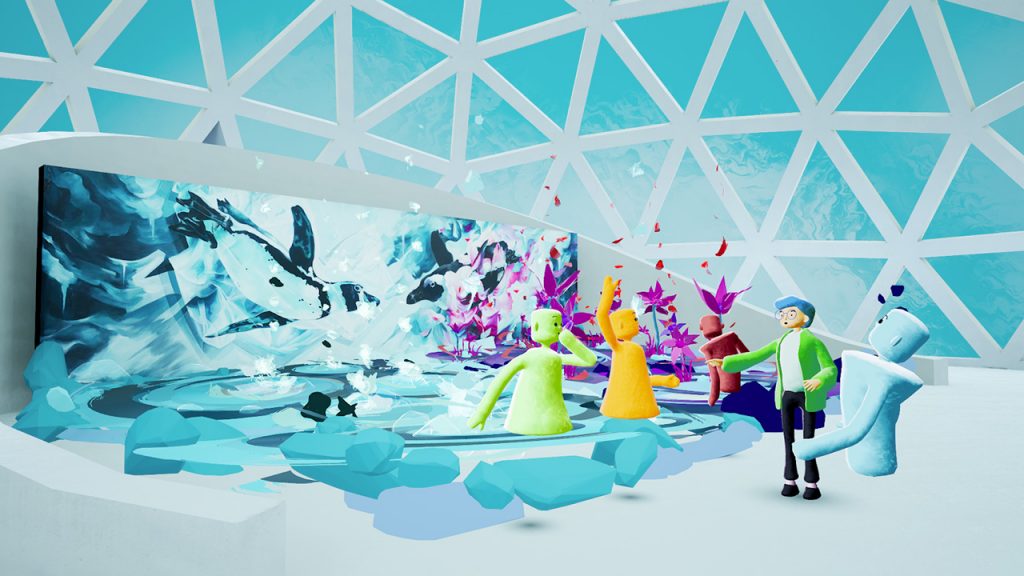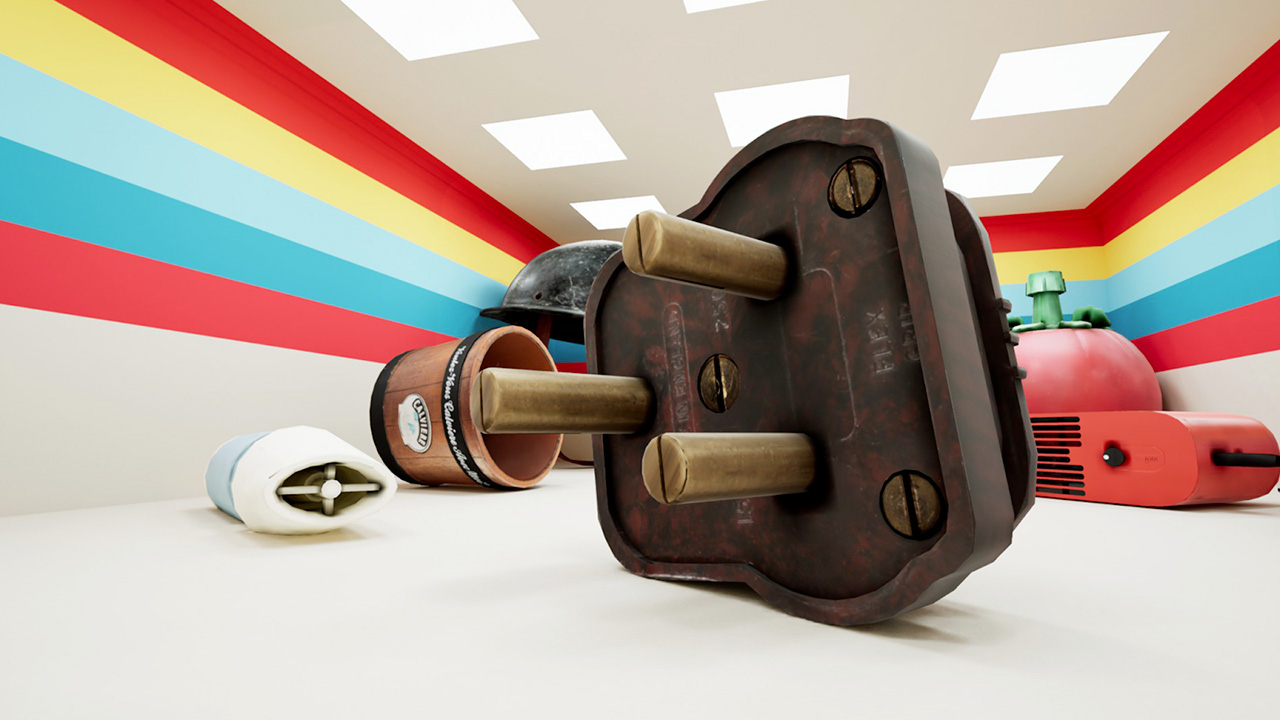Curatours, a portal for arts & culture, has launched its first museum, the Museum Of Plastic 2121, a virtual museum based 100 years from now in an imagined future where things have worked out well for both the planet and humanity. Visitors can uncover the story of plastic – its history, science, industry, and impact on our environment. They will learn the importance of establishing a circular economy and find out how activism and individual action happening now will lead to positive change in the future.
Combining pixels and paint, and the physical with the virtual, Cooperative Innovations worked closely in partnership with South African environmental organisation, The Greenpop Foundation and the Street Art organisation, Baz-Art, which in turn worked with artists and communities to create real world murals alongside 3D paintings for the museum. We’ve compiled a tool kit of practical actions and changes each visitor can make/ implement in their own lives so we can all start working towards a positive future.
Museum of Plastic 2121 is supported by the British Council’s Creative Commissions programme, a series of creative commissions exploring climate change through art, science and digital technology as part of The Climate Connection global initiative.
Curatours is a social digital space – it isn’t connected to physical geography, it’s nationless, timeless and unconstrained by physics. Featuring stories and creativity from partners around the world, it’s a space where people can gather, learn and discuss what they’ve learned. The whole idea of the Museum of Plastic is to take advantage of the best properties of the Curatours platform and, by bringing a future museum to life, to show visitors a path forward to a better future.
Emma Cooper, Project Lead at Cooperative Innovations
It’s been really exciting working with Cooperative Innovations on this project. I love the inspiring, optimistic story they tell about a possible future, without flinching from the problems of today, one that weaves together technological innovation with political movement building, and social and cultural change. I also think they’ve been really clever about how they use the story of plastics. It’s not just a plastic straw here or a crisp packet there, but how the whole system of plastics sits at the core of modern consumption and the fossil fuel age – moreover, how maybe, just maybe, tackling plastic pollution could, far from being a distraction from larger structural fights with the oil industry, help humanity heal its relationship with the oceans and build something positive based on a technological drive to improve our world as well as respect for science and other species we share the world with.
Dr Alice Bell, Co-director at Possible

Combining the insights from academic research with a creative approach, makes a powerful tool for communication. The problems that plastics can cause have been widely publicised; our Plastics Project at Hull was trying to address those by designing new plastics and new ways of recovering value from plastics. Our research also looked at policy and social issues, which are quite often the constraints on environmental improvements. So it was a refreshing experience to look forward 100 years to imagine what a future plastics world might look like with problems resolved. COP-26 is the perfect time to be taking this look forward. There have been some gloomy headlines recently, but we should remain optimistic that a better society can be achieved alongside the awareness of how urgently necessary it is.
Pauline Deutz, University of Hull
Our relationship to plastic here in South Africa is mostly quite unhealthy. This goes across the board, from policy, to producers, retailers and consumers. There is a need for a significant cultural shift within every sector. Plastics travel by the wind and tributaries, and almost inevitably land up in our major river systems and oceans. From what I have seen, there is sufficient motivation in the various sectors to move the needle and come up with innovative ways to create circular economies, find alternatives to single use plastics and build policies that change unhealthy behaviour.
Misha Teasdale, Greenpop (discussing the state of plastic pollution in South Africa)
How to visit the Museum of Plastic 2121
You can visit The Museum of Plastic 2121 through the Curatours app which is available for VR headsets and Windows PCs.
To download for Oculus Quest VR headset, please visit Oculus App Lab:
https://ocul.us/2ZKIVTa
To download for other VR Headsets & Windows PC, please visit Steam:
https://bit.ly/3bArsj2
Further information can be found by heading to the website:
https://bit.ly/2ZPUMja



Leave a Reply
You must be logged in to post a comment.